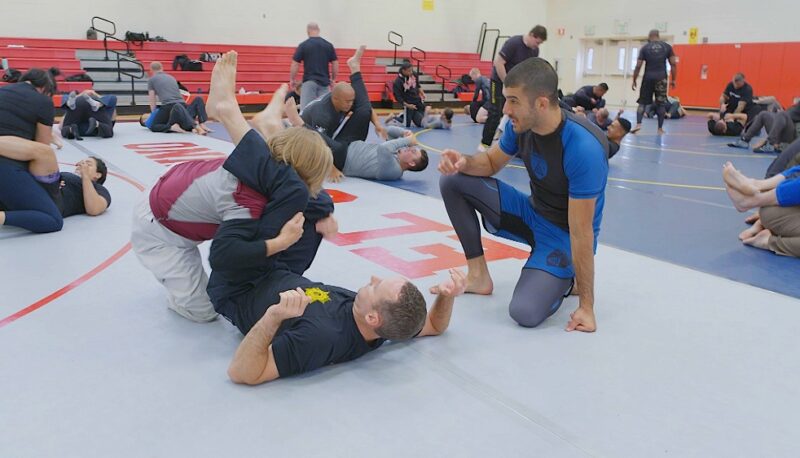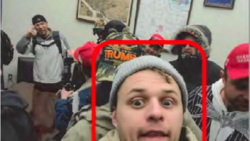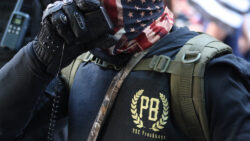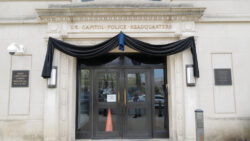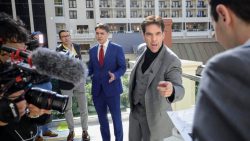Analysis
Last week, HBO aired an episode of “Real Sports with Bryant Gumbel” with a segment that investigated the use of Brazilian jiu-jitsu as a method to reduce instances of the excessive use of force among police officers. The segment focused on Rener Gracie, a member of the famed Gracie family who advocates for BJJ training regimens to be adopted by police forces across the United States, arguing that improving unarmed combat skills would help decrease reliance on tasers and guns.
The segment, titled “Police Jiu Jitsu Training,” also looked into the Marietta, Georgia police department, where Major Jake King implemented the department’s new program mandating all officers train in BJJ. King worked with Gracie on the program, which was implemented in 2019, and believes it has already produced quantifiable results.
However, while the prospect reforming police departments through combat sports such as BJJ is an interesting concept, it fails to address the underlying problems of police brutality or the institutionalized racism that allows such systemic violence to take place across the United States.
Developed in the 1920s, BJJ is a martial art and combat sport that utilizes ground fighting and submissions to subdue opponents. The sport, which was developed by the Gracie family as an offshoot of Japanese jiu-jitsu, later became a pivotal component of mixed martial arts and was popularized when Royce Gracie won the inaugural Ultimate Fighting Championship event in 1993. While plenty of Gracie family members have since gone on to compete in MMA and jiu-jitsu tournaments, Rener Gracie, a grandson of founder Helio Gracie, focused on popularizing online BJJ programs and specific BJJ curriculums for police officers.
According to King, Gracie’s BJJ training program has led to a 53 percent reduction in injuries to suspects and a 48 percent decline in Marietta police officers being injured. King also claimed that his department saved almost $70,000 in workers’ comp claims in the first year alone, which is less than what the BJJ program cost.
While the Marietta police department is an interesting case study in the effects of mandatory hand-to-hand combat training for police officers, the data sample is far too limited to confidently answer the question as to whether jiu-jitsu training would limit instances of excessive force.
“The state here has zero requirement for yearly training. You never have to attend any training that involves putting hands on people,” King said during the segment, which premiered Tuesday, Aug. 24. “You’re spending the vast majority of your training time on the firing range. Shooting at a bullseye.”
For years, police forces across the United States have used chokeholds, specifically blood chokes that restrict flow to the carotid arteries and lead to loss of consciousness, to subdue suspects. While effective, the chokes are applied with varying levels of proficiency and technique, which lead to injuries, and in some cases, death. Take officer Derek Chauvin, who pressed his knee against George Floyd’s neck for more than nine minutes while the victim gasped, “Please, I can’t breathe.” Floyd suffocated shortly thereafter, his death caused by “asphyxiation from sustained pressure” due to violent and unnecessary use of force.
Six years prior to Floyd’s murder, another African American man, Eric Garner, was killed in Staten Island after a NYPD officer placed him in a chokehold. Garner repeated the words “I can’t breathe” 11 times while lying face down on the sidewalk.
BJJ gives practitioners the opportunity to defend themselves in close-quarter situations. They protect themselves using an array of techniques, dynamic movements, leverage, and submissions. However, most BJJ practitioners will only ever have to apply their training in supervised spaces such as gyms or tournaments. Police officers have stressful jobs and operate in high-pressure situations where it may be difficult to remain calm, let alone apply BJJ techniques correctly. It also does not prevent officers who want to use force when it isn’t needed from using force. Instead, it gives them another dangerous tool in their arsenal.
While Gracie understands the legitimate concerns surrounding his BJJ program, he argues that police officers who practice BJJ will be more confident and therefore calmer and more collected when handling stressful situations.
“More jiu-jitsu, lower perception of threat,” explained Gracie. “Every officer who is empowered with jiu-jitsu, it’s much harder to shake their confidence. And when you have trouble shaking someone’s confidence, you have trouble pushing someone to the brink.”
Though Gracie’s argument seems reasonable, he failed to acknowledge the institutional violence orchestrated by police departments against Black communities. Instead, Gracie found a way to monetize his program with the overarching goal of protecting police officers.
While Rener Gracie is not outspoken about his political views, it is worth noting that his family, which spans continents, has significant ties to the far right. His grandfather, Helio, was a member of the Brazilian fascist movement Integralism. His cousin, former Brazilian UFC fighter Rezno Gracie, has quoted the likes of Heinrich Himmler and expressed an affinity for military dictatorships. He was also one of many family members who supported Trump ally Jair Bolsonaro’s presidential campaign and was eventually given a role as an ambassador for Embratur, a branch of Brazil’s Ministry of Tourism, in 2019. Shortly following his appointment, Renzo Gracie threatened to choke out Emmanuel Macron, the French president who criticized Brazil’s reactions to the Amazon wildfires. Macron called the fires an “international crisis,” which led to Renzo Gracie’s angry outburst on social media. The Renzo Gracie Academy franchise in New Hampshire also sports the “Thin Blue Line” flag on its official website promoting jiu-jitsu programs that are “perfect for law enforcement officers.”
BJJ has the potential to help reform police departments. However, the answer does not lie with a training program devised by a family with fascist roots and questionable political affiliations. Unless police departments are forced to address the underlying issues of lack of education in history and civil rights, oppression, and racism, BJJ training is simply a glorified way to arm police officers with lethal force.




